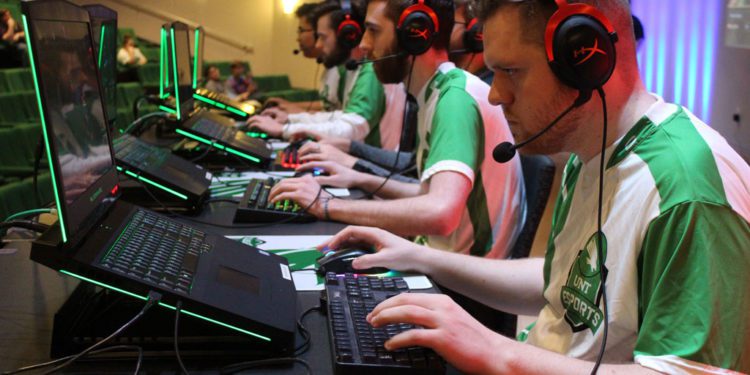The world of esports is continuing to grow on campuses across the nation. While some schools are against the idea of competitive video games in campus recreation, or are trying to understand where it belongs, recreational sports at the University of North Texas (UNT) has embraced the sport.
“For UNT, after meeting with many students who were already part of the gaming culture on our campus, we felt like embracing them and the needs of this community was the right thing to do and a good fit for us,” said Laurie Klein, the director of recreational sports at UNT. “Our administration wanted esports to fall under campus recreation, so we dove in head-first to learn the language and the needs of the gaming students, and support them in their passion.”
While UNT is in full support of esports in recreation, Klein emphasized it’s up to each program and institution to determine if it’s appropriate on their campus, where it should be housed, and if it fits in the overall umbrella of campus recreation and the mission of the department. “We are seeing esports under many different departments including campus recreation, athletics, student activities, I.T. and others,” she said.
It’s no shock esports will continue to gain speed on a global level, especially as new students make their way onto campuses each year with more gaming experience. Klein said it would be crazy not to meet them where they are.
Furthermore, Klein is hopeful departments will begin to see more female involvement in esports with the growing popularity. “As high schools are adopting the activity, games will become more accessible to female students, and I hope game developers will continue to create strong characters within the games that will attract female players,” she elaborated.
Overall, having an esports program on your campus might be only be a matter of time, if it’s not already present. To prepare, Klein listed her best advice for developing and growing an esports program:
- Determine what is already happening on your campus regarding competitive video gaming and student organizations.
- Talk with your students and determine what their needs are.
- Gather support from the administration — this might be challenging for some schools.
- Do your homework and network with other colleges and universities.
- Understand the collegiate esports landscape — this can be quite a learning curve for many of us.
- Evaluate your campus recreation program and determine if esports fits.
- Identify space, funds and staff.
- Dive in and enjoy the ride.










